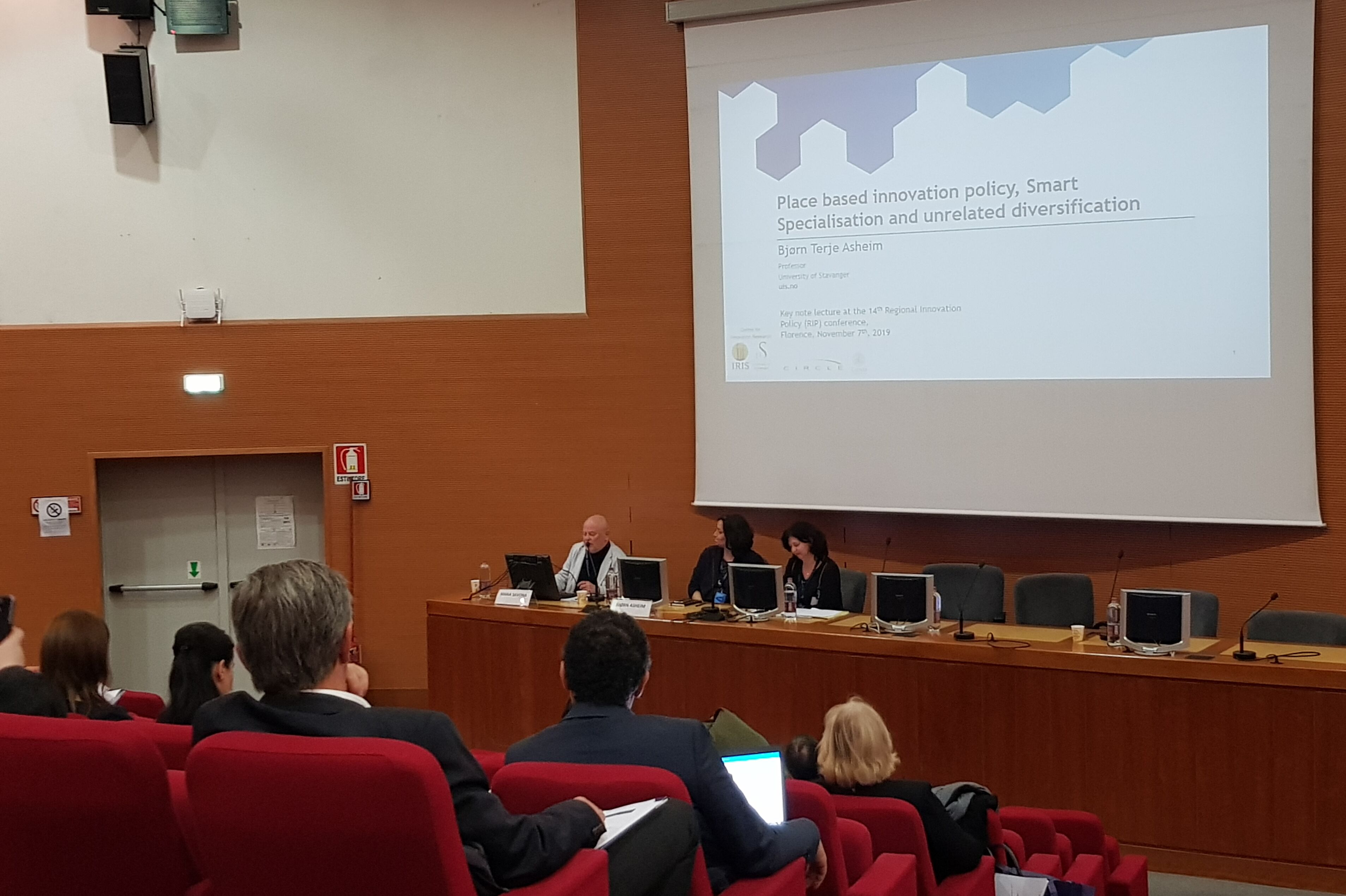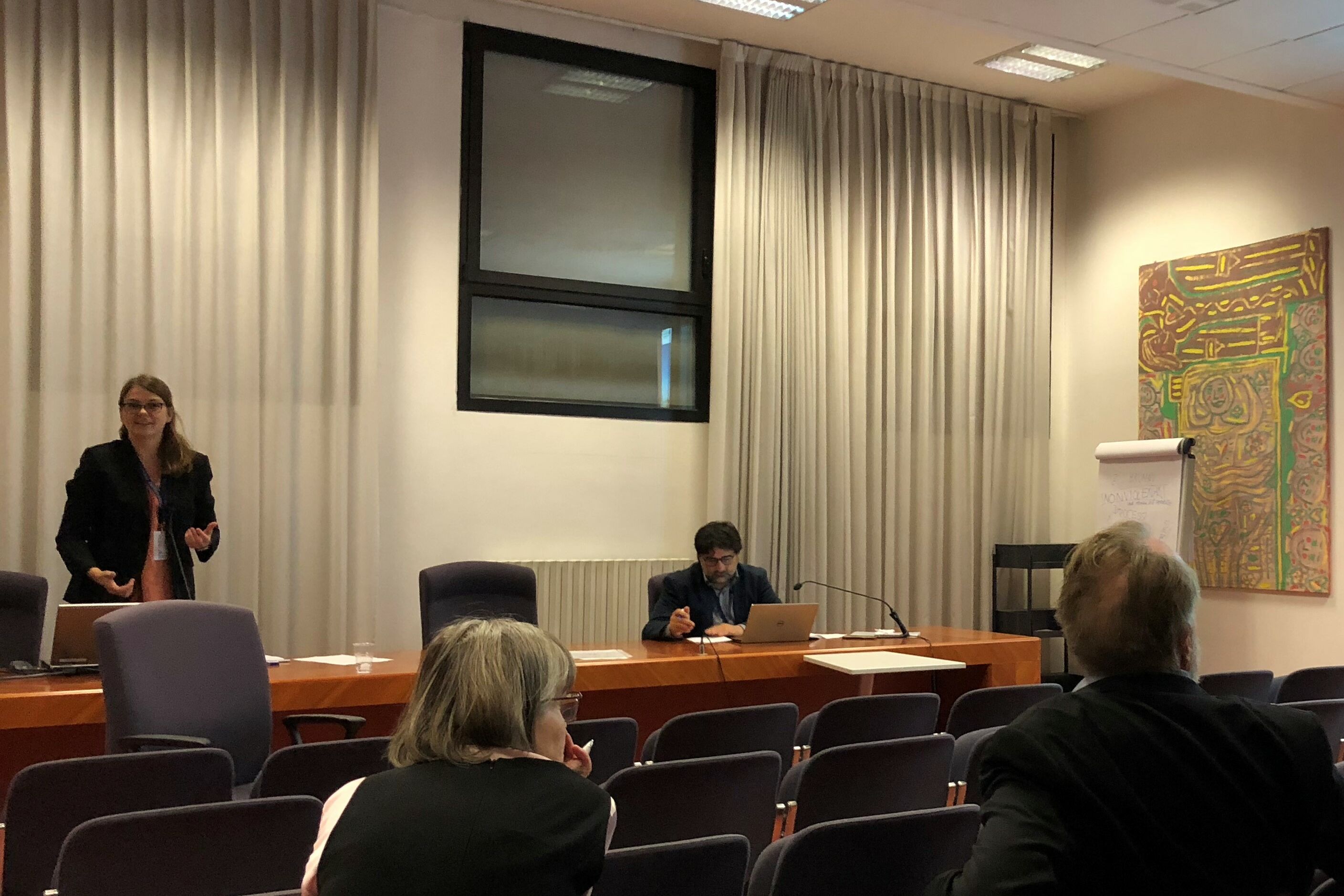From 7 to 8 November, the Universita degli Studi Firenze hosted the 14th Regional Innovation Policy Conference entitled "Technological Change, Social Innovation and Regional Transformation". For the Cluster Regional Development and Rural Areas an interesting programme of presentations and keynotes was offered. During a session on "Social Innovation in local and regional development", Miriam Richter-Tokar presented a conceptual research framework on the mobility of innovation policies in the Baltic Sea region.
On the first day, the focus was on research on innovation policy and, above all, innovation in peripheral areas. Rune Dahl Fitjar from the University of Stravangar and Markus Grillitsch from the University of Lund organized a series of sessions on the topic "Regional growth against all odds". First, Mr Grillitsch and Mr Nielsen (Lund) presented a study on the Ulsteinvik region in Norway in which they highlighted the role of long-term strategic agency for regional development. They referred to a model of the Trinity of Change Agency by Grillitsch and Markku Sotarauta (Tampere) (2019) that distinguishes between innovative entrepreneurship, place-based leadership and institutional entrepreneurship. In the following lecture, Mr. Sotarauta related this model to path development and examined it on the basis of empirical studies in Jakobstad and East Lapland (Finland). Magnus Nilsson (Lund) then presented a study on the role of local culture in regional development. He concluded that a close local culture (using the example of Gnosjöandon in Gällivare/Gnojö, Sweden) promotes incremental innovation but prevents radical innovation. The morning closed with a presentation on policies to promote the diffusion of digitisation.
The first afternoon session focused on the methodological challenges of capturing agency data in regional development. Questions of the right research design, timing, spatial scale and instruments were discussed. Subsequently, this theoretical elaboration was tested in practice within the ReGrow project. Also of interest was Heike Mayer's (Berne) contribution on slow innovation in peripheral regions of Europe. She went to remote Alpine regions in Austria and Italy to bring Shearmore's slow innovation model into line with post-growth aspects. In fact, the peripheral regions offered local actors the opportunity to experiment and passion for the product played an important role in the innovation process. Finally, Magnus Nilsson analysed the concept of trust and its importance for regional development.
The second day was devoted to social innovation, which has become increasingly important in recent years in contrast to a common technological understanding of innovation. The morning keynote by Frank Moulaert (Leuven) emphasized above all the ethical aspects of regional development, explicitly that power relations in politics are often ignored. This contribution was complemented by a presentation by Gabriela Gandel, who presented Impact HUB as a Europe-wide service provider for social innovations. In this topic area, too, the problem of the empirical analysis of social innovations was at the centre of the discussion. Silvia Rita Sedita (Padua), Simone Strambach (Marburg) and Judith Terstriep (Westphalen) addressed different approaches to measuring and mapping social innovations in their presentations. Andrea Winiger (Bern) complemented this session by pointing out that the measurement of results should not only focus on economic aspects, but that social indicators are also an important consequence of social innovation in the context of the post-growth concept. The quadruple helix approach, which sees community as an important fourth driver of innovation alongside the public and the private sector as well as universities, has also been widely discussed as a research approach to social innovation (Virkkala (Vaasa), Donati (Florence), Biggeri (Florence)). The day closed with a discussion on the notion of social ecosystems, which allows a systemic analysis of social innovations.
Text: Miriam Richter-Tokar


